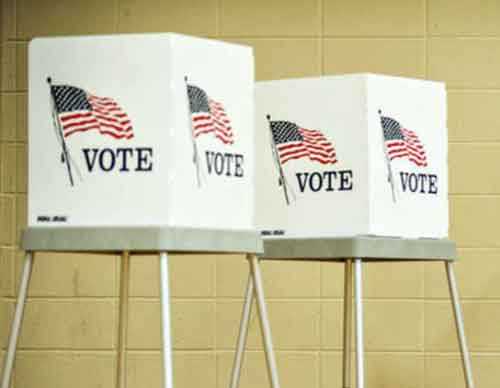WASHINGTON D.C.-Last night's CBS edition of "60 Minutes" brought to light to their viewers, a little known aspect of the dealings of our lawmakers in Washington. This Sunday's edition, by Steve Kroft shown the spotlight on some of our politicians and their part in the legal "Insider Trading" that takes place in our nation's capitol. The program was based on a book by Peter Schweizer, titled, "Throw Them All Out." Peter Schweizer is a conservative author and research fellow at Stanford University's Hoover Institution.
The show began with Kroft pointing out how our lawmakers expend millions of dollars every election cycle to retain their seats in Washington for a salary of $174,000. Yet, those same lawmakers leave the capitol, if they ever leave the capitol, with much more money than when they arrived. Many of them come by their monies through investments. Many of those lawmakers make their money through legalized “Insider Trading.”
Schweizer makes it clear that what the lawmakers do is currently legal as the laws are written. He also makes it clear that the rules are written by the politicians in Washington, and written in such a way that those “Insider Trading” laws do not apply to them.
Schweizer uses as his first example of this Washington practice, the financial meltdown that took place in September of 2008. In the days prior to the collapse, Treasury Secretary Hank Paulson and Federal Reserve Chairman Ben Bernanke held closed door briefings with Congressional leaders advising them that the meltdown was about to occur. One of those in attendance was Alabama Representative Spencer Bachus. The next day, with this information that was available to only those in attendance, Bachus would use that information to buy various stock options that bet that, and would profit from, that meltdown. This at a time that typical Americans were being hammered by the collapse. His spokesman said that Bachus never used non-public information to make his stock market buys, but his financial disclosure forms seem to say otherwise.
The Blogosphere is ablaze on the Internet today with many calling for accountability and the resignation of Bachus. None believe his denials.
But, the dealings of Congressman Bachus were not the only instances that were brought into the glaring spotlight last night. Kroft pointed out that during the 2009 Healthcare debate, then Minority Leader of the House John Boehner, and other members of Congress, were trading in Healthcare stocks even as they voted to kill the bill. He denied any unethical behavior as well.
Another of the Washington politicians that was shown to have made shady deals in Washington was Illinois Congressman Dennis Hastert. Hastert, who became Speaker of the House in 1999 went to Washington worth only a few hundred thousand dollars. By 2005, Speaker Hastert would recieve a $207 million earmark to build a highway, the Prairie Parkway, that would be built near where he lives. Hastert had bought up property adjacent to the construction. Five months after the earmark passed congress, Hastert sold that property for $2 million. He was unavailable for comment on the deal. He is presently in Washington, employed as a lobbyist.
Another example of this type of dealing was New Hampshire Senator Judd Gregg. He and his brother had commercial interest in a closed down Air Force base in his state. Gregg steered almost $70 million of goverment funds towards the redevelopment of that Air Force base.
Nancy Pelosi was also singled out. She was singled out for her participation in Initial Stock Options. During 2008, as legislation was moving through the House that would have been damaging to Visa as well as other credit card companies, she bought 5,000 shares of Visa stock in an IPO. She paid $44 a share, within two days, that stock was worth $64 a share. The credit card legislation never made it to the floor of the house.
Pelosi would not make a comment on the transactions, but later skirted around the question at a press conference before dismissing it out of hand.
A spokesman for Pelosi would blast “60 Minutes” in a statement after the airing of the segment last night. He called the reporting “troubling,” and accused “60 Minutes” of basing their story on “an already-discredited conservative author who has made a career out of attacking Democrats.” It should be pointed out however, that the segment also aired the dealings of Boehner and Bachus as well, both Republicans.
Efforts to change the laws regarding inside trading by members of Congress were undertaken by former Congressman Brian Baird for 6 years, fully half of the time he retained a seat in the House. The bill was called the Stock Act. It was introduced in 2004. It would have made insider trading illegal for Congressmen. The bill died. That bill has been re-introduced every session, it never sees the light of day.








